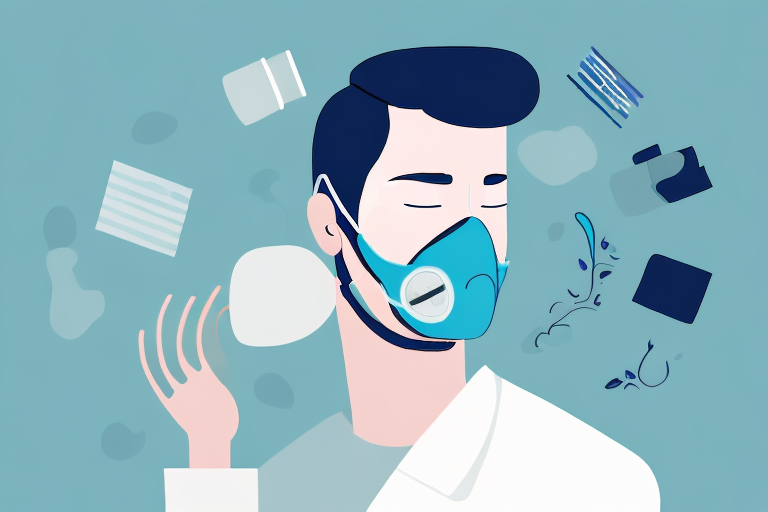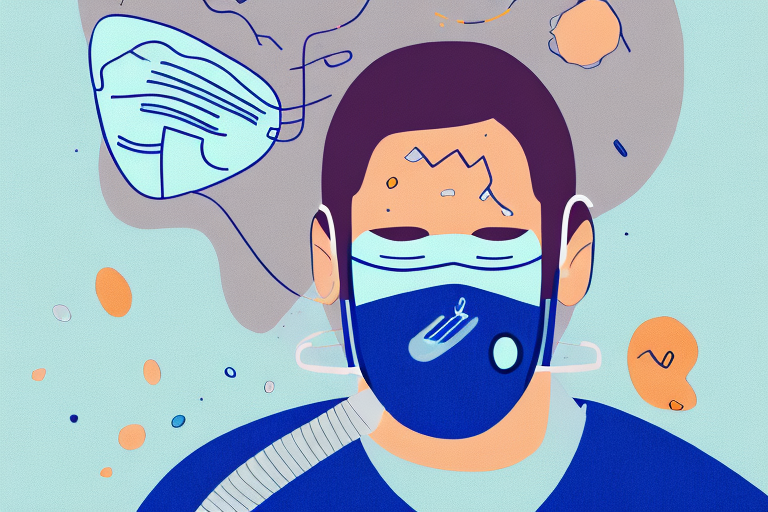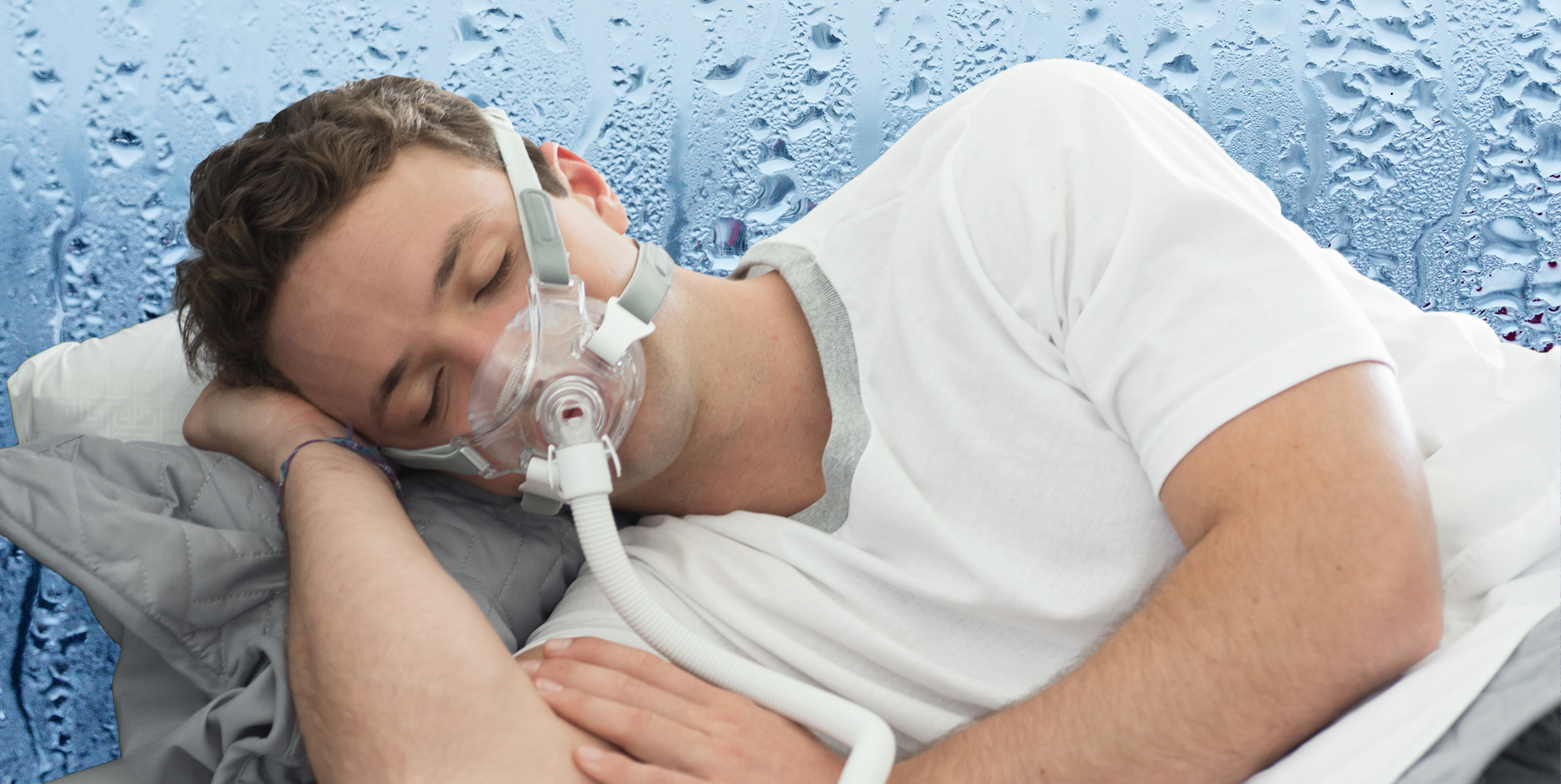In the realm of sleep apnea treatment, CPAP masks play a crucial role in ensuring optimal comfort and effective therapy. Sleep apnea is a sleep disorder characterized by pauses in breathing or shallow breaths during sleep. CPAP, or continuous positive airway pressure, therapy involves the use of a machine that delivers a steady flow of air pressure through a mask, keeping the airway open and allowing for uninhibited breathing. While the CPAP machine itself is important, choosing the right CPAP mask is equally vital for a successful treatment experience.
Understanding the Role of CPAP Masks
CPAP masks act as the interface between the machine and the user, delivering pressurized air directly into the airway. They are designed to fit securely and comfortably on the face, ensuring an airtight seal and minimizing leakage. The mask’s primary function is to provide a constant flow of air throughout the night, enabling uninterrupted breathing and reducing the risk of sleep disturbances caused by sleep apnea episodes.
When it comes to buy cpap mask online, there are various options available to cater to individual preferences and needs. Some masks cover the nose, while others cover the nose and mouth. There are also masks that fit directly into the nostrils, known as nasal pillows. Each type of mask has its own advantages and considerations, and it’s important to find the one that suits you best.
One of the key factors to consider when choosing a CPAP mask is the fit. A proper fit is crucial for effective therapy, as it ensures that the pressurized air is delivered precisely to the airway. Ill-fitting masks can result in air leaks, which not only reduce the therapy’s effectiveness but can also cause discomfort and disrupt sleep. To achieve a good fit, CPAP masks often come with adjustable straps and headgear, allowing users to customize the fit according to their facial structure and comfort level.

The Importance of CPAP Therapy
Sleep apnea is a serious condition that can lead to various health issues if left untreated. These include excessive daytime sleepiness, fatigue, mood disturbances, and an increased risk of cardiovascular disease. CPAP therapy is considered the gold standard treatment for sleep apnea, providing consistent air pressure to keep the airway open and preventing apnea episodes during sleep.
By using a CPAP machine and mask, individuals with sleep apnea can experience significant improvements in their quality of life. The therapy not only helps alleviate the symptoms associated with sleep apnea but also reduces the risk of developing other health complications. Consistent use of CPAP therapy can lead to increased energy levels, improved cognitive function, and better overall well-being.
How CPAP Masks Aid in Sleep Apnea Treatment
CPAP masks play a crucial role in sleep apnea treatment by ensuring that the pressurized air delivered by the machine is effectively transmitted to the user’s airway. Their design and fit are pivotal in maintaining a good mask seal and preventing air leaks, which can diminish the therapy’s efficacy.
Moreover, CPAP masks are not only functional but also comfortable. The comfort of the mask is essential for user compliance, as individuals are more likely to adhere to the treatment regimen if they find the mask pleasant to wear. Manufacturers have made significant advancements in mask technology, incorporating features such as soft cushioning, adjustable headgear, and lightweight materials to enhance comfort during sleep.
Additionally, CPAP masks are designed with user convenience in mind. Many masks have quick-release mechanisms that allow users to easily remove or put on the mask, making nighttime bathroom trips or other interruptions more manageable. Some masks also have built-in exhalation ports that minimize noise, ensuring a quiet and peaceful sleep environment for both the user and their bed partner.
Overall, CPAP masks are an integral part of sleep apnea treatment, working hand in hand with the CPAP machine to provide effective therapy. By choosing a mask that fits well, promotes comfort, and meets individual needs, users can maximize the benefits of CPAP therapy and enjoy restful, uninterrupted sleep.
Factors to Consider When Choosing a CPAP Mask
When selecting a CPAP mask, several factors come into play to ensure both optimal comfort and ease of use. These include considerations such as comfort and fit, mask types and their differences, material and durability, and additional features. By understanding these factors, users can make informed decisions when choosing a CPAP mask that suits their individual needs.
Comfort and Fit
Comfort and fit are vital aspects of CPAP therapy. A well-fitting mask should create a reliable seal without causing discomfort or pressure points on the face. Various types of masks are available, such as nasal masks, full-face masks, and nasal pillow masks, each offering different levels of comfort and fit. It is important to try different masks and seek professional guidance to find the one that provides the best balance between a secure fit and overall comfort.
Furthermore, comfort can be enhanced by considering additional features such as adjustable headgear straps, cushion materials, and forehead supports. These features allow users to customize the fit of the mask, ensuring a comfortable and personalized experience during CPAP therapy.
Mask Types and Their Differences
CPAP masks come in different types, each designed to suit various preferences and needs. Nasal masks cover the nose and are a popular choice for users who breathe primarily through their nose. They are lightweight and provide a secure seal, making them suitable for individuals who move around during sleep.
Full-face masks cover both the nose and mouth, making them suitable for those who breathe through their mouth or have nasal obstructions. These masks ensure a constant flow of air, preventing air leaks and maintaining effective therapy. Additionally, full-face masks often come with features like integrated chin straps to provide extra stability and prevent mouth breathing.
Nasal pillow masks, on the other hand, rest just inside the user’s nostrils and are an option for individuals who prefer a minimalistic design while maintaining an open field of vision. These masks are lightweight, compact, and offer a high level of comfort, making them an excellent choice for users who feel claustrophobic with traditional masks.

Material and Durability
The material and durability of CPAP masks greatly affect their overall performance and lifespan. Quality masks are typically made from hypoallergenic materials that are soft, comfortable, and easy to clean. These materials help prevent skin irritation and ensure a pleasant experience during CPAP therapy.
In addition to material, durability is an essential factor to consider when choosing a CPAP mask. A durable mask can withstand regular use and cleaning without losing its shape or effectiveness. Masks with reinforced seams and sturdy construction are more likely to last longer, providing users with a cost-effective solution for their sleep apnea treatment.
Moreover, some masks are designed with replaceable parts, such as cushions and headgear, which can extend the lifespan of the mask and reduce long-term costs. It is important to consider the availability and affordability of replacement parts when selecting a CPAP mask.
Additional Features
Aside from comfort, fit, mask types, and material, CPAP masks may offer additional features that can enhance the overall therapy experience. These features can include built-in exhalation ports to reduce noise, anti-asphyxia valves to ensure safety, and compatibility with humidifiers to provide added moisture during therapy.
Furthermore, some masks incorporate innovative technologies like magnetic clips for easy attachment and detachment, quick-release headgear for convenient removal, and advanced venting systems to minimize air turbulence and promote a quiet sleep environment.
By considering these additional features, users can further personalize their CPAP therapy and optimize their comfort and satisfaction with the chosen mask.
Tips for Achieving Optimal Comfort with CPAP Masks
While selecting the right CPAP mask is crucial, there are additional steps users can take to enhance comfort and overall experience with their mask:
Using a CPAP mask is a significant step towards improving sleep apnea symptoms and ensuring a restful night’s sleep. However, it is essential to prioritize comfort to maximize the benefits of this therapy. Here are some additional tips to help you achieve optimal comfort with your CPAP mask:
Proper Cleaning and Maintenance
Maintaining good hygiene and regularly cleaning the mask is essential for preventing bacterial growth and maintaining a comfortable fit. Following the manufacturer’s guidelines for cleaning and replacing mask components ensures that the mask remains in optimal condition.
When it comes to cleaning your CPAP mask, it is recommended to use mild, fragrance-free soap and warm water. Gently scrub the mask components, including the cushion, headgear, and straps, to remove any dirt or oils that may have accumulated. Thoroughly rinse the mask and allow it to air dry before using it again.
Additionally, it is crucial to replace the mask components as recommended by the manufacturer. Over time, the elasticity of mask components may deteriorate, resulting in compromised fit and increased leakage. Regularly replacing worn-out parts, such as cushions, headgear, and straps, helps ensure a secure and comfortable fit, enhancing the overall treatment experience.

Adjusting to Wearing a CPAP Mask
Wearing a CPAP mask may initially feel unfamiliar and uncomfortable. To help with the adjustment process, it can be beneficial to use the mask during daytime naps or while engaged in relaxing activities. Gradually increasing the duration of nightly usage can aid in getting accustomed to wearing the mask and promote a more restful night’s sleep.
During the adjustment period, it is normal to experience some discomfort or claustrophobic sensations. To alleviate these feelings, try practicing relaxation techniques, such as deep breathing or meditation, while wearing the mask. This can help distract your mind and promote a sense of calmness.
Another helpful tip is to ensure that the mask is properly fitted. A well-fitted mask should create a seal without causing excessive pressure or discomfort. Adjust the straps and headgear to find the perfect balance between a secure fit and comfort. If you are unsure about the fit, consult with your healthcare provider or a CPAP mask specialist for guidance.
It is also worth noting that using a CPAP machine with a built-in humidifier can contribute to overall comfort. The humidifier adds moisture to the air, reducing dryness and irritation that may occur with continuous airflow. Experiment with different humidity settings to find the level that works best for you.
Remember, achieving optimal comfort with your CPAP mask is a journey that may require some trial and error. Be patient with yourself and give yourself time to adapt. With proper cleaning, regular maintenance, and a commitment to the adjustment process, you can experience the full benefits of CPAP therapy while enjoying a comfortable and restorative sleep.
Overcoming Common CPAP Mask Problems
Dealing with Mask Leaks
Mask leaks can disrupt sleep and diminish the effectiveness of CPAP therapy. Thankfully, there are ways to address this common issue. Checking the mask’s fit and adjusting the headgear straps can often resolve minor leaks. If persistent leaks occur, it may be necessary to try a different type or size of mask to achieve a better seal.
Managing Skin Irritation
Some individuals may experience skin irritation or pressure sores from prolonged mask usage. To prevent or minimize these issues, it is important to keep the mask clean and ensure a proper fit. Applying a hypoallergenic barrier cream or using mask liners made from soft materials can also help alleviate skin discomfort.
Addressing Noise Issues
CPAP machines and masks can produce noise during operation, which may disrupt sleep for both the user and their partner. Seeking masks with noise reduction features or utilizing white noise machines can help mask any unwanted sounds, promoting a quieter and more restful sleep environment.
In conclusion, choosing the right CPAP mask is crucial for achieving optimal comfort and effective sleep apnea therapy. Understanding the role of CPAP masks, considering factors such as comfort and fit, mask types, and material durability, and following practical tips for achieving comfort can greatly enhance the treatment experience. By addressing common CPAP mask problems such as leaks, skin irritation, and noise, users can ensure uninterrupted therapy and breathe easy as they embark on their journey towards a good night’s sleep.
Related: A Comprehensive Guide to ResMed Masks for CPAP Therapy

